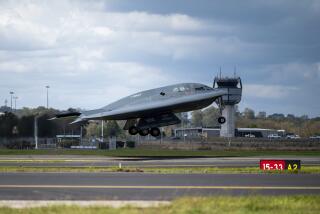Keeping the Peace
Until late last week the threat of mine warfare in the Persian Gulf seemed to be largely a thing of the past. Then, east of Bahrain on Thursday, the U.S. guided-missile frigate Samuel B. Roberts struck a mine that severely damaged the ship and injured 10 of its crewmen. The next day American vessels recovered other mines in the area that the Pentagon identified as being Iranian-made and--from their physical appearance--only recently sown in the water. The Reagan Administration quickly let it be known that retaliation against Iran was being considered. What followed was described by U.S. officials as a measured response. It turned out to closer to a mini-war.
The retaliation was directed against two Iranian oil platforms, one of which was destroyed by naval gunfire, the other by explosives placed by Marine commandos. These platforms together may have produced as much as 160,000 barrels of oil a day. If that’s true their loss is a considerable economic blow to Iran. This was not the end of the affair, though. According to the Pentagon, Iranian ships next entered the battle, directly challenging U.S. vessels. By the time the shooting stopped one Iranian gunboat had been sunk and two frigates were burning in the water.
The Administration’s action drew general bipartisan support from Congress, not surprising where the issue was seen as the principle of self-defense in international waterways. What does surprise is the seeming decision by Iran to go back into the mine-warfare business, despite the obvious risks to its interests that are involved. Last September an Iranian ship was caught in the act of laying mines, and sunk. The next month U.S. vessels destroyed one of Iran’s oil platforms after a missile was fired at a Kuwaiti tanker flying the U.S. flag. Those were costly losses; this week’s were costlier still. It’s hard to discern any rational motive for the resumption of mine warfare. It is unhappily not hard to see where the cycle of retaliation and reprisal can lead if conditions in the gulf continue to place Iran and the United States on a course of direct confrontation.
More to Read
Sign up for Essential California
The most important California stories and recommendations in your inbox every morning.
You may occasionally receive promotional content from the Los Angeles Times.










